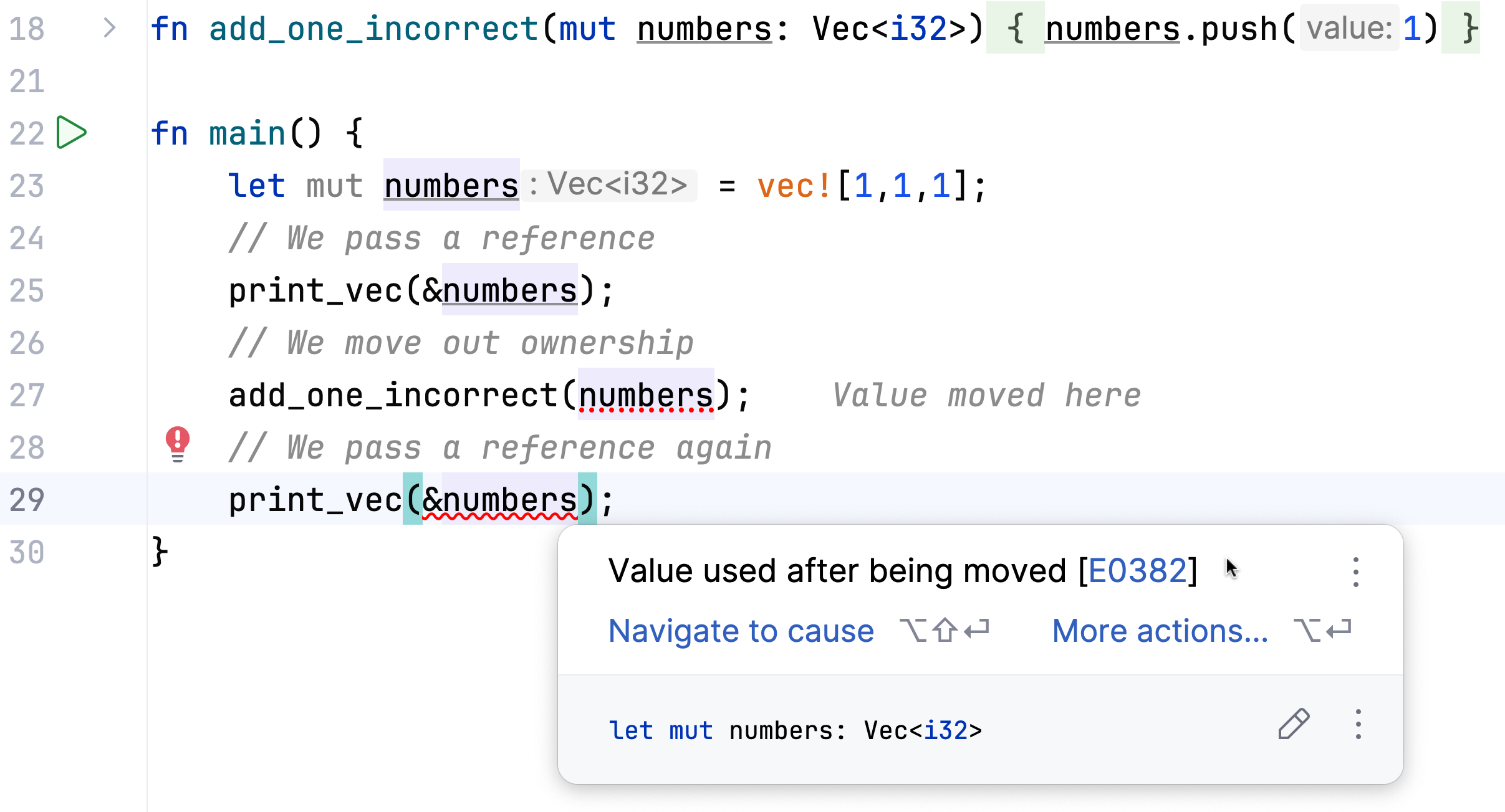
You’re considering Rust as your next programming language to dive into. With some coding experience under your belt, likely in languages like Python or JavaScript, you’re curious about what Rust has to offer. You’ve come across discussions highlighting Rust as a contemporary systems programming language known for its safety and efficiency, addressing challenges often faced in languages like C or C++. You’ve noticed a surge in its popularity, with major companies like Google, Microsoft, and Amazon integrating it into their projects. Additionally, reports suggest that its adoption across various sectors is on the rise. However, you’ve also heard that Rust might not be the simplest language to master, leaving you uncertain about your ability to learn it.
If the description above resonates with you, this article is tailored for you. My goal is to address any inquiries you may have regarding the journey into Rust. I will begin by highlighting the advantages of learning Rust for software developers and will compare it to other programming languages in the market. Following that, I will outline the key Rust features and concepts that are essential to grasp, as these elements represent a significant advancement in programming languages. With this foundation, I will provide recommendations for getting started, along with a variety of educational materials, including books, guides, tutorials, and courses, to help you navigate the learning process. As you embark on this journey, you may face certain challenges, and I will offer strategies to help you overcome them. Lastly, I will explore the domains of software development where Rust excels and provide insights on how to engage with these areas.
What are the reasons to study Rust in 2024?
Contents
Surveys conducted among developers indicate that Rust ranks among the top 12 programming languages widely utilized in the tech sector. Data reveals that 10–13% of software developers engage with Rust on a regular basis. Notably, among those who are in the process of learning programming, the percentage of Rust users rises to 11–18%. This group of Rust learners plays a significant role in the language’s expansion. For instance, the State of Developer Ecosystem Survey highlights that Rust has experienced consistent growth over the past six years, with no indications of a slowdown.

Take a look at the “Likely to adopt” column: Rust stands out as the sole language with a double-digit figure!
The admiration developers have for Rust is unparalleled. How can I be so sure? The StackOverflow Developer Survey offers compelling evidence:
- Rust remains the most cherished programming language among developers, holding this title for numerous consecutive years (is it eight or nine? The exact number seems to have slipped from memory!).
- Individuals currently utilizing Rust are reluctant to transition to different programming languages.
Having attended numerous Rust developer conferences, I can confirm that the enthusiasm for Rust is palpable. Rustaceans are passionate about the language and have fostered one of the most welcoming communities to engage with.
Conversely, the StackOverflow survey indicates a decrease in the median annual salary over the past few years, a pattern that is also observed in other popular programming languages. Although Rust is increasingly embraced by leading and medium-sized tech firms, its uptake among numerous smaller businesses remains limited. This lack of widespread adoption could potentially lead to a rise in Rust job openings, making the market less competitive than it currently is (refer to this interesting discussion for further insights).
Examining the language, its characteristics, and the surrounding ecosystem reveals the source of its popularity. Rust has been crafted to achieve both memory safety and high performance. The distinctive decisions made by its creators help minimize memory access errors, thereby reducing the risk of security vulnerabilities. The trade-off for this safety does not involve sacrificing performance. So, what is the trade-off? It is the effort you, as a developer, must invest in convincing the Rust compiler of the safety of your code. Once the compiler is satisfied, you can be confident in your code’s safety. The combination of memory safety and performance is incredibly beneficial, as it leads to a more seamless experience for users of software solutions, which is a necessity in today’s world. Rust’s standard library, along with other essential libraries and tools, further improves the developer experience. For instance, creating high-performance concurrent applications in Rust is quite manageable, as the ecosystem is both mature and well-equipped to handle such challenges.
Developers value the diverse range of technological fields and sectors where expertise in Rust can be utilized. The latest Rust Annual Survey highlights the following areas:
- Applications running on the server side and other backend systems.
- Applications, services, and infrastructure related to cloud computing.
- Decentralized networks.
- Computer networking refers to the practice of connecting computers and other devices to share resources and information.
- Cybersecurity.
- Embedded systems development.
- Video game creation.
- Web interfaces (which encompass WebAssembly).
- And numerous others.
Certainly, Rust is not the sole programming language utilized in these domains. Each area has its own set of competitors. Rust is frequently contrasted with C++ and Go, as they overlap in several domains but vary in several key factors, such as memory safety assurances, performance capabilities, the availability of tools and libraries, language ease of use, and the extent of industry acceptance. Although Rust may not be as advanced in the latter three categories, it matches C++ in performance and significantly simplifies the process of avoiding memory access errors, enabling the development of reliable applications.
Grasping the fundamental principles of Rust
Let’s take a comprehensive look at Rust and its characteristics. Rust is distinct from both object-oriented and functional programming languages. It lacks traditional classes and does not inherently endorse object-oriented paradigms. While it can treat functions as first-class citizens, this capability is not as extensive as that found in fully functional languages like Haskell or OCaml.
Creating code that incorporates functions, variables, and data types.
Rust programs are organized into modules that contain groups of functions. These functions are responsible for manipulating values. In Rust, values are statically typed, which means that each value or expression must have a designated type determined at compile time. The language offers both primitive types and compound types, such as arrays and structs, while its standard library includes a variety of additional types for managing collections of values. Rust also supports generics, enabling developers to create more flexible and general definitions without specifying exact types. Furthermore, Rust includes traits, which are collections of methods that can be implemented for particular types. This feature allows Rust to achieve a level of software abstraction comparable to that of object-oriented languages that utilize inheritance and polymorphism.
Memory management
Rust’s method of managing memory is founded on a key principle: the Rust compiler must have a clear understanding of the exact points in the code where memory is allocated, how it is accessed, and when it is no longer in use. This understanding enables the compiler to regulate memory access and automatically release allocated memory by embedding the necessary instructions directly into the compiled code, thereby preventing many of the common issues that can arise in other programming languages. This method stands in contrast to the automatic memory management systems found in languages like JavaScript, Python, Java, or C#, where memory that is no longer in use is identified during runtime and collected by a garbage collector. Consequently, Rust eliminates the runtime overhead associated with these garbage collection algorithms, achieving both memory safety and enhanced performance.
In order to derive insights regarding memory access, Rust imposes restrictions on memory usage and establishes rigorous guidelines to guarantee accuracy.
- Each fragment of memory must be associated with one specific variable, which is a fundamental principle of Rust’s ownership system.
- Altering a segment of memory necessitates having sole access, rather than merely being able to read the memory.
- Rust enables the creation of both mutable and immutable references to segments of memory (known as borrowing), while employing a borrow checker to ensure correctness. This mechanism, for instance, prevents the existence of multiple mutable references simultaneously.
- The Rust compiler analyzes and verifies the lifetimes of all variables within a program, tracking them from their point of creation to their point of destruction, when they are no longer accessible.
The demands of the compiler can often be overly rigid. This can lead to frustration, particularly for those who are new to the language, as the Rust compiler might reject code that is logically sound.
To clarify these ideas further, let’s explore the Rust counterpart of the subsequent Python program:
pythondef display_numbers(num_list):for num in num_list:print(str(num) + " ", end="")print()def increment_by_one(num_list):num_list.append(1)def run_program():num_list = [1, 1, 1]display_numbers(num_list)increment_by_one(num_list)display_numbers(num_list)if __name__ == '__main__':run_program()
We start with a list in Python containing three items. After displaying it, we append an additional item and print the list once more. Throughout this process, we don’t specify any data types. Python handles memory management seamlessly, requiring no explicit indications in the code, even though memory allocation and deallocation occur behind the scenes. Additionally, we can effortlessly share the list of numbers without concerning ourselves with memory access management.
The equivalent code in Rust varies not just in its syntax, but also in its overall methodology regarding types and memory management.
// In this example, we reference a vector using (&). // Modifying the elements is not permitted. // We are borrowing the vector, not taking ownership. fn display_vector(numbers: &Vec)< for number in numbers < print!("<>", number); > println!() >// In this example, we obtain a mutable reference to a vector (&mut). // This grants us the ability to modify both the vector and its elements. // However, we do not take ownership; we merely borrow it. fn increment(numbers: &mut Vec)< numbers.push(1) >rustfn main_function() {< let mut numbers = vec![1,1,1]; // We pass a reference print_vec(&numbers); // We pass a mutable reference add_one(&mut numbers); // We pass a reference again print_vec(&numbers); >
Examining these two snippets of code can be quite enlightening, allowing you to identify both their similarities and differences independently. Even if you aren’t familiar with Rust, you can still gain an overall impression of the language simply by observing the code.
Even though there are passing references, the variable holding the numbers continues to control the allocated memory. By default, Rust allows only read access to memory, necessitating a clear declaration for write access. Additionally, Rust guarantees that the memory is released after the final use in the second invocation of print_vec.
Here’s an alternative version of the add_one function that assumes ownership of a vector, leading to an incorrect program behavior.
fn increment_by_one(mut nums: Vec)
What’s the issue? After invoking the add_one_incorrect function, the numbers variable loses ownership of the memory, leading to the end of its lifetime, which prevents us from printing anything! The screenshot below illustrates the predicament we’re facing:

Prior to the introduction of the erroneous version, Rust’s borrow checker was capable of guaranteeing that the use of references would not lead to issues. However, once an error was introduced, this assurance was compromised. This aspect of the language illustrates the stringent management of memory access.
Concurrency
Concurrency refers to a system’s capability to perform several tasks or processes at the same time or during overlapping time frames, enhancing both efficiency and performance. This can include executing tasks in parallel across several processors or interleaving tasks on a single processor, enabling the system to manage multiple operations at once and handle various tasks more efficiently.
Rustaceans frequently characterize Rust’s approach to concurrency as fearless. This viewpoint is shaped by a variety of elements:
- The ownership model enhances the ability to manage data sharing among multiple threads operating simultaneously.
- Adopting immutable data structures streamlines the development of concurrent algorithms and enhances thread safety.
- The use of message passing through channels in Rust significantly simplifies the challenges associated with shared-state concurrency.
- Rust’s methodology regarding lifetimes and memory management typically results in more elegant and secure code when dealing with concurrency tools like locks, semaphores, or barriers.
- In numerous instances, Rust’s method of handling asynchronous programming allows for the bypassing of intricate concurrency patterns, facilitating the creation of code that is both succinct and easy to understand.
While concurrency may not be the initial focus for newcomers to Rust, it is generally more accessible compared to many other programming languages. Crucially, Rust enables you to create concurrent code that is less likely to contain errors.
Getting Started with Rust: A Beginner’s Guide
To begin using Rust, you only need to install two components on your computer:
- The Rust toolchain is a set of tools that encompasses the Rust compiler along with various other utilities.
- A programming editor or integrated development environment (IDE).
The initial step is straightforward: visit rustup.rs and either execute the recommended command or download the installer, based on your operating system.
The next step involves selecting an option. You can either opt for a code editor that has been set up for Rust development, like Visual Studio Code, which does need some configuration, or you can choose a specialized Rust IDE, such as RustRover, a JetBrains product that is available for free for those who are learning Rust.
By selecting RustRover, there’s no need for any configuration. Simply start the application, initiate a new project by clicking the New Project button on the welcome screen, and execute the default Hello, world! program by clicking the green triangle icon in the gutter to run the main function.

Should you face any issues, consult the Quick Start Guide for RustRover.
Any task that goes beyond basic functionality necessitates the inclusion of external dependencies. Rust projects utilize Cargo, which serves as a package manager. In the Rust ecosystem, packages are referred to as crates. The dependencies are outlined in the Cargo.toml file, as illustrated in the following example:
[package] name = "greetings" version = "0.1.0" edition = "2021" [dependencies] chrono = "0.4.38"
Once we include the chrono crate in our dependencies, we can leverage the features it offers in our code, such as:
rustuse std::time::SystemTime;fn main() {< println!("Hello, world!"); let local: DateTime= Local::now(); println!("Today is <>", local.format("%A")); >
This program retrieves the current local date and time, formats it to display the day of the week, and then outputs the result. For instance, executing this program produces:
Greetings, everyone! It's Thursday today.
Acquiring knowledge of fundamental syntax, data types, and control structures (such as if-statements and loops) in Rust goes hand in hand with exploring the various crates and their functionalities. After you are able to execute Rust programs, you will be prepared to engage with external dependencies. Now, let’s discuss the resources that make the process of learning Rust easier.
Educational journey and materials
If you’ve had the experience of studying a foreign language, you’re aware that it involves a range of skills, including reading, writing, listening, and speaking. To enhance these skills, a variety of activities are suggested. Instructors often motivate you to engage with texts, view videos, listen to podcasts, practice speaking whenever you can, and share on social media, among other activities. The process of learning programming languages follows a similar pattern. When you embark on learning to code in Rust (or any other programming language), you:
- Explore literature, manuals, blog entries, updates, and conversations on social media, as these are essential for remaining knowledgeable and aware of the context.
- Check out videos created by technology vloggers.
- Examine code examples, which inherently involves both reviewing and altering them!
- Develop code to finish the tasks.
- Engage in practical tutorials.
- Create basic projects from the ground up, as this is crucial—learning through projects is highly beneficial for cultivating self-sufficient coding abilities.
- You might also consider getting involved in open-source projects, as there are often beginner-friendly tasks available—just reach out for guidance!
It’s important to strike a balance between studying programming concepts and actively coding. You cannot truly master a programming language without hands-on experience. Conversely, neglecting books and comprehensive resources may result in a limited grasp of the underlying principles, making it difficult to tackle complex problems without assistance. While seeking help is acceptable, it may hinder your progress toward becoming a proficient developer.
When coding, it’s crucial to not only replicate exercises created by others but also to explore your own concepts or those you’ve adopted for building straightforward applications. Make sure your exercises extend beyond just understanding algorithms; they should also impart knowledge about language characteristics and library capabilities. As you create simple applications, you will learn to select the language features or libraries that align most effectively with your objectives. This ability is a vital skill in its own right.
The secret to effective learning lies in integrating various methods. I have gathered a selection of resources that can assist you in this endeavor.
Books on Rust programming
Numerous excellent resources exist for those looking to learn Rust:


- The Rust Programming Language serves as the official and frequently updated resource for individuals interested in learning Rust. Within the community, it is commonly referred to as “The Book.” Additionally, I suggest exploring an alternative version that incorporates greater interactivity, including quizzes, visual aids, and practical exercises. This version was created by researchers from Brown University: Will Crichton, Gavin Gray, and Shriram Krishnamurthi. Furthermore, an interview with Will Crichton is available, where he elaborates on this initiative aimed at improving the learning experience for Rust enthusiasts.
- “Rust in Action” authored by Tim McNamara, who is widely recognized as timClicks, is a book worth following across all platforms.
- “Hands-on Rust” by Herbert Wolverson is a fantastic resource for individuals who thrive on learning through projects. Additionally, Herbert offers a wealth of free videos covering a range of Rust topics, which I highly recommend.
- “Rust for Rustaceans” by Jon Gjengset is a Rust programming book that receives significant acclaim from numerous members of the community.
- Master Rust Programming with Brenden Matthews.
- “Master Rust in a Month of Lunches” by David MacLeod.
- After spending several months studying Rust, you might want to explore Mara Bos’s Rust Atomics and Locks. This work brilliantly elucidates the fundamental principles of concurrency in Rust.
Rust programming guides
For individuals who favor a practical method of learning, there are tutorials and courses available that include exercises.
- Comprehensive Rust is an internally developed Rust tutorial by Google that is accessible to all. It serves as an excellent resource for anyone looking to swiftly grasp all the essential aspects of the language.
- Rustlings, along with its in-IDE learning variant, is a Rust course offered by JetBrains Academy.
- 100 exercises for mastering Rust – an excellent course featuring tasks created by Luca Palmieri, a Rustacean worth following.
- Eleftheria Batsou shared an appealing collection of straightforward project concepts for you to explore as you delve into learning Rust.
- Enroll in Herbert Wolverson’s Rust course at ArdanLabs to gain a solid understanding of Rust’s foundational concepts and explore the fundamental principles that influenced its creation.
Rust on YouTube
If you’re a Rust enthusiast who enjoys learning through YouTube, I suggest subscribing to a variety of channels available on the platform.
- Let’s Get Rusty – I’m not sure what the secret is, but I find it difficult to look away from these videos.
- Jeremy Chone excels at clarifying intricate ideas.
- Chris Biscardi discusses game development using Rust and the Bevy framework, among other topics. Developing a game is a fantastic endeavor for anyone!
- Jon Gjengset’s Rust tutorials are highly technical and may be challenging for beginners to follow initially. However, it is recommended to watch his in-depth streams early on in your Rust learning journey, as they provide valuable insights and knowledge that can greatly benefit your understanding of the language.
Rust ecosystem
- The Rust subreddit is a vibrant and engaging community that is worth your attention. This online forum is a hub for Rust enthusiasts, where they share their knowledge, discuss the latest developments, and collaborate on projects. Whether you’re a seasoned Rust programmer or just starting to explore the language, the Rust community on Reddit offers a wealth of valuable information and support.
- The Rust Community Discord server is a platform where individuals new to the Rust programming language can seek assistance and pose their inquiries. It serves as a hub for Rust enthusiasts to engage, collaborate, and find support from the broader Rust community.
- This Week in Rust is the premier source for staying up-to-date with the latest developments in the Rust programming language. I make it a point to read this publication religiously every single week.
Certainly, there are numerous additional resources for learning, but it’s not feasible to enumerate them all. The positive aspect is that your journey with Rust is ongoing, as the language is always developing.
Typical obstacles and strategies for overcoming them.
Mastering the Rust programming language can be a demanding endeavor, but with the right approach, you can conquer the challenges and become proficient in this powerful language. Here are some strategies to guide you on your journey:1. Embrace the learning curve: Rust has a steeper learning curve compared to some other programming languages, but this is a testament to its robustness and safety features. Approach the learning process with patience and a growth mindset, and you’ll find that the initial difficulties will gradually give way to a deeper understanding.2. Dive into the documentation: The Rust documentation is comprehensive and well-organized, providing a wealth of information to help you navigate the language. Familiarize yourself with the official Rust book, the standard library documentation, and the various online resources available.3. Practice, practice, practice: Hands-on experience is key to mastering Rust. Engage in coding exercises, build small projects, and participate in coding challenges to reinforce your understanding of the language’s syntax, concepts, and best practices.4. Leverage the community: The Rust community is vibrant and supportive. Engage with other Rust learners and developers through online forums, meetups, or conferences. Asking questions, sharing your progress, and collaborating on projects can greatly accelerate your learning process.5. Embrace the borrow checker: The Rust borrow checker, while initially challenging, is a powerful tool that ensures memory safety and prevents common programming errors. Invest time in understanding its principles and how to work with it effectively.6. Explore the ecosystem: Rust has a rich ecosystem of libraries and tools that can enhance your development experience. Familiarize yourself with popular crates (Rust’s equivalent of packages) and explore how they can be integrated into your projects.By following these strategies, you can navigate the learning curve of Rust and emerge as a proficient Rust developer, capable of creating robust, efficient, and secure applications.
- Grasp the concept of ownership. The ownership model in Rust, encompassing ideas such as ownership, borrowing, and lifetimes, tends to be the most difficult part for newcomers. Begin with simple examples and engage in regular practice. Emphasize understanding the reasons behind Rust’s enforcement of these rules, rather than just finding ways to bypass compiler errors.
- Be patient with the borrow checker. It can be challenging due to its strictness, often resulting in perplexing compiler errors. When facing borrow checker problems, pause to consider the safeguards Rust is implementing. Try different strategies, such as using references or cloning data (but avoid excessive cloning!). Don’t hesitate to seek assistance on platforms like Reddit or the Rust Community Discord. Gaining a clear understanding of the borrow checker is invaluable. For instance, check out the insightful explanation by Nell Shamrell-Harrington.
- Take advantage of Rust’s outstanding documentation. As a newer programming language, Rust may present some challenges that are less common in more established languages. However, the documentation for Rust is extensive and well-crafted. Additionally, the Rust community offers valuable resources, such as the Rust by Example guide.
- Begin with straightforward projects. Rust’s intricacy can make even basic projects seem daunting initially. Start by implementing fundamental programs and gradually progress to more complex ones. Examples of simple projects include constructing a command-line tool with clap, writing basic file parsers, or creating a basic web server using a framework like Rocket.
- Mastering your code editor or IDE is crucial for efficient Rust development. Manually writing Rust code can be prone to errors, but utilizing tools can provide valuable assistance with features like code completion, linting, and formatting, ultimately enhancing your productivity and code quality.
- Immerse yourself in the vibrant Rust community. Embarking on a new programming language journey can sometimes feel solitary. Engage with the Rust community by contributing to open-source initiatives, joining Rust-centric chat rooms, or actively participating in online forums. The Rust community is renowned for its warm welcome and willingness to assist newcomers.
- Embrace your errors as learning experiences. The Rust compiler is known for its rigor, which may sometimes feel like a struggle. However, consider each compiler error as a chance to grow. Rust provides detailed error messages that can lead you to the right fix. With time, you’ll discover that these mistakes contribute to your ability to write more robust and secure code.
- Exercise patience. It’s common to feel disheartened when working with Rust. Keep in mind that Rust prioritizes safe




